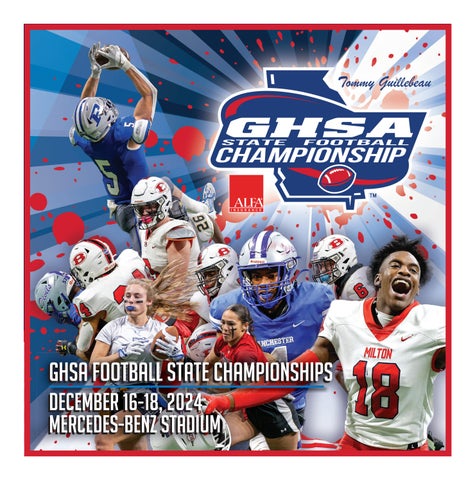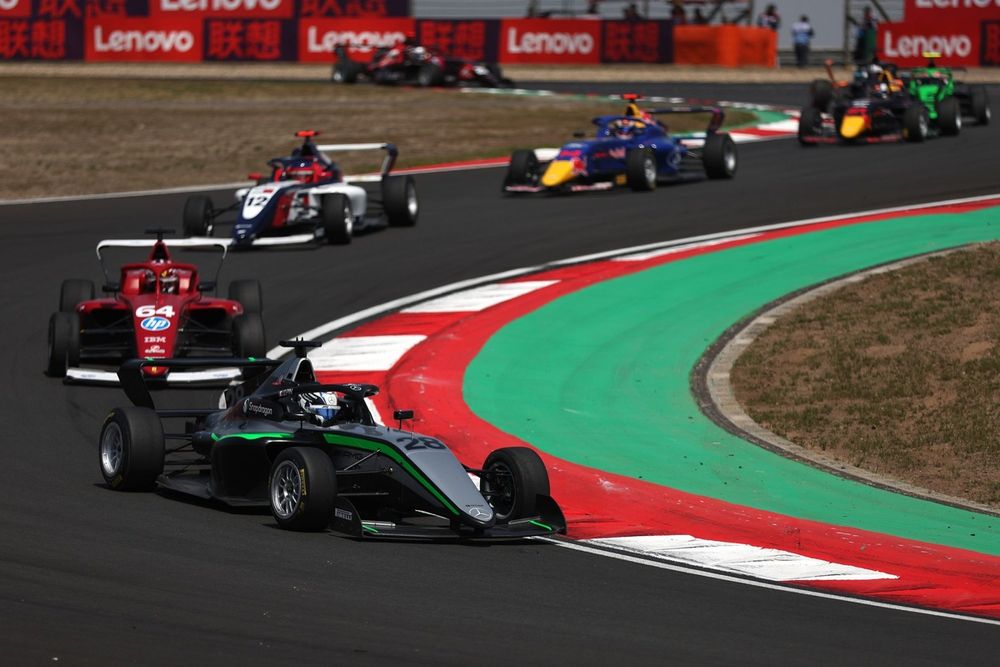NIL
3 bold moves Nick Saban must make if he wants to save college football
Nick Saban may be done coaching, but he’s not done fighting for the future of college football. Fresh off his retirement, the legendary Alabama coach is expected to co-chair a brand-new commission on college sports alongside Texas Tech NIL collective founder Cody Campbell and former President Donald Trump. The group’s purpose? Untangling the mess that […]
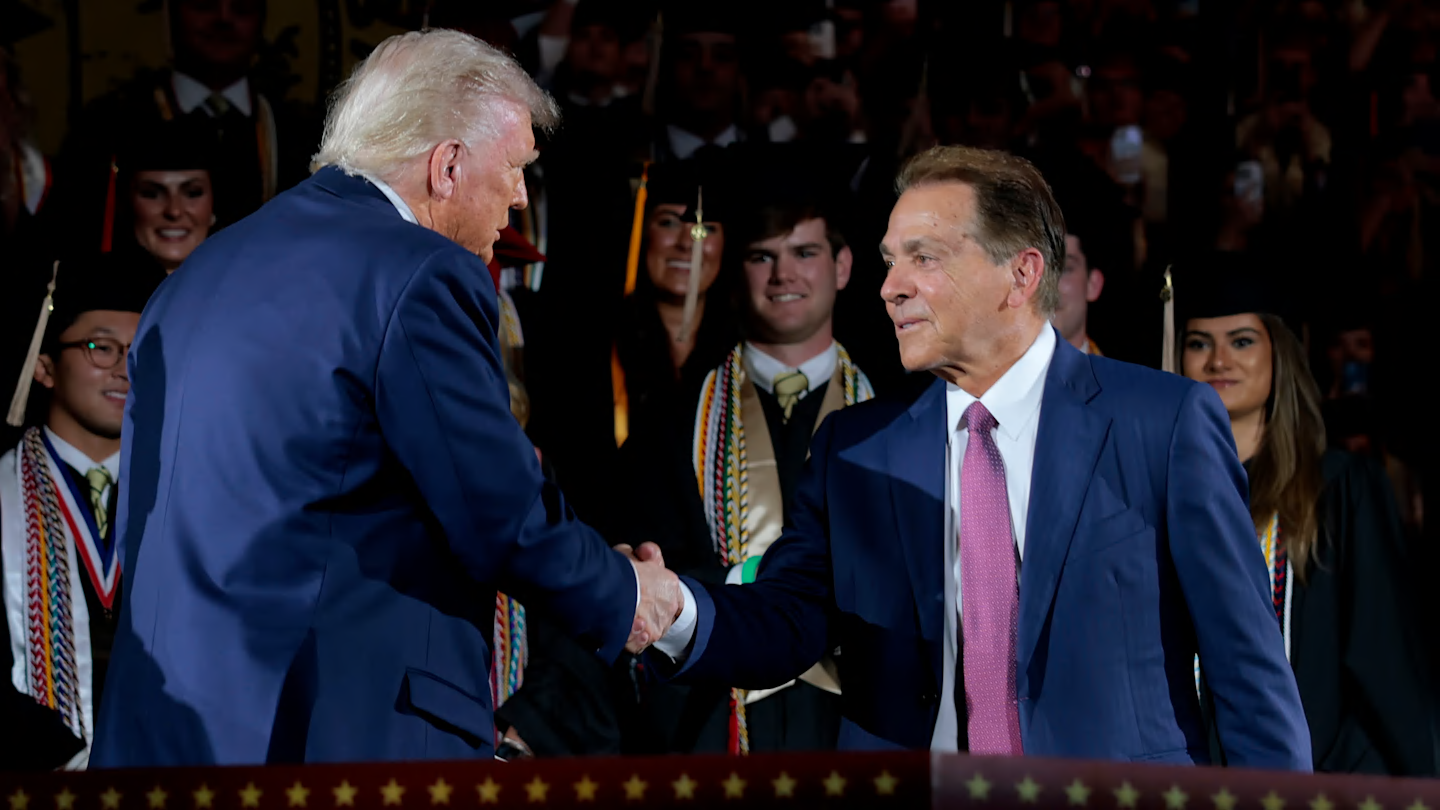
Nick Saban may be done coaching, but he’s not done fighting for the future of college football.
Fresh off his retirement, the legendary Alabama coach is expected to co-chair a brand-new commission on college sports alongside Texas Tech NIL collective founder Cody Campbell and former President Donald Trump. The group’s purpose? Untangling the mess that college athletics—especially football—has become in the NIL era.
The commission plans to tackle everything from player movement in the transfer portal to Title IX issues, revenue sharing, and the chaotic state of booster involvement.
Let’s be real: this is finally a decision that is long overdue.
All that being said, ifNick Saban truly wants to cement his legacy by helping fix the sport, here are the three bold moves his commission must make.
1. Tame the NIL & Revenue Sharing Chaos
NIL isn’t the enemy—it’s the way it’s being abused that’s the problem.
Name, Image, and Likeness should absolutely empower student-athletes. They should be able to cash in on their personal brand, make appearances, land endorsement deals, and benefit from their success. But what we have now isn’t that—it’s backdoor bidding wars disguised as NIL. Collectives are offering high schoolers six-figure deals just to commit. That’s not NIL. That’s free agency without rules. They’re also tampering with other team’s players.
The commission needs to push for strong, clear national standards on NIL deals. That includes transparency, oversight, and ideally, a financial cap for revenue sharing — which will be a different thing than NIL. No other sport operates without a salary ceiling. Why should college football? If we’re moving toward a world where revenue sharing is the norm, then the playing field should be somewhat level financially.
Otherwise, only the richest schools—Texas, Texas A&M, Oregon—will consistently dominate the recruiting landscape, not because of culture, coaching, or development, but because they simply outbid everyone else. That’s not what college football is supposed to be.
2. Fix the Transfer Portal and Redefine Eligibility
Right now, the transfer portal is a free-for-all. Players are hopping schools more often than some fans buy jerseys. And while mobility and opportunity are good things in theory, what we’ve got now is instability. Chaos. And it’s hurting both players and programs.
The solution? Streamline the system.
First, narrow it to one transfer window. Coaches and players both need clarity and breathing room. Second, incentivize loyalty. Revenue sharing should be scaled by experience and commitment. Juniors and seniors who stay with their programs should see a bigger piece of the pie—rewarding development and discouraging short-term exits.
Also, we’ve got to end the constant loopholes in eligibility. Right now, players can bounce from school to school with waivers and redshirts and “medical hardships” that make things even harder to track. Just make it simple: five years to play, no redshirts, one free transfer. After that? You lose a year of eligibility if you decide to move again as an undergrad. Am I saying there won’t be exceptions to the rule? Sure, there may be a few, but those will be “exceptions,” not the rule.
It’s not about punishing kids. It’s about setting expectations—and restoring some sense of stability to college football rosters. If every athlete knows they’ve got five years and one free shot at a fresh start, that’s both fair and firm.
And you know who else benefits from this? The fans. You know, the people who are paying and watching the product. You might want to think of them.
3. Regulate the Agent Free-For-All
One of the most overlooked disasters in modern college football is the shady underworld of “agents.”
Right now, anyone can act as a middleman for a college athlete. A family friend, a coach, a cousin, a neighbor who once sold insurance—they’re all suddenly “representing” kids in NIL talks. And the truth is, many of these so-called agents have zero experience, zero certification, and zero concern for the athlete’s long-term future.
The NFL has strict agent rules for a reason. So should college football.
Saban’s commission must push for a national registry of certified agents who are allowed to represent athletes. There need to be standards—background checks, ethics policies, consequences for bad actors. Players deserve guidance, not grifters. And right now, too many are being set up to fail by people who see them as a quick payday.
Let’s be blunt: a 17-year-old shouldn’t be expected to navigate the legal and financial implications of a $500,000 NIL deal without experienced representation. That’s asking for disaster. By stepping in here, the commission can help protect kids from exploitation—and protect the sport from further erosion.
Read More
NIL
Texas Tech Red Raiders – Official Athletics Website
LUBBOCK, Texas – The No. 12-seeded Red Raiders (46-12) won their opening game of the Lubbock NCAA Softball Regional on Friday evening, taking down Brown (33-16) 6-0 in Texas Tech’s 24th shutout victory of the season and 46th total win, a new program record. Freshman Samantha Lincoln got the start and threw 3.0 great innings, allowing […]
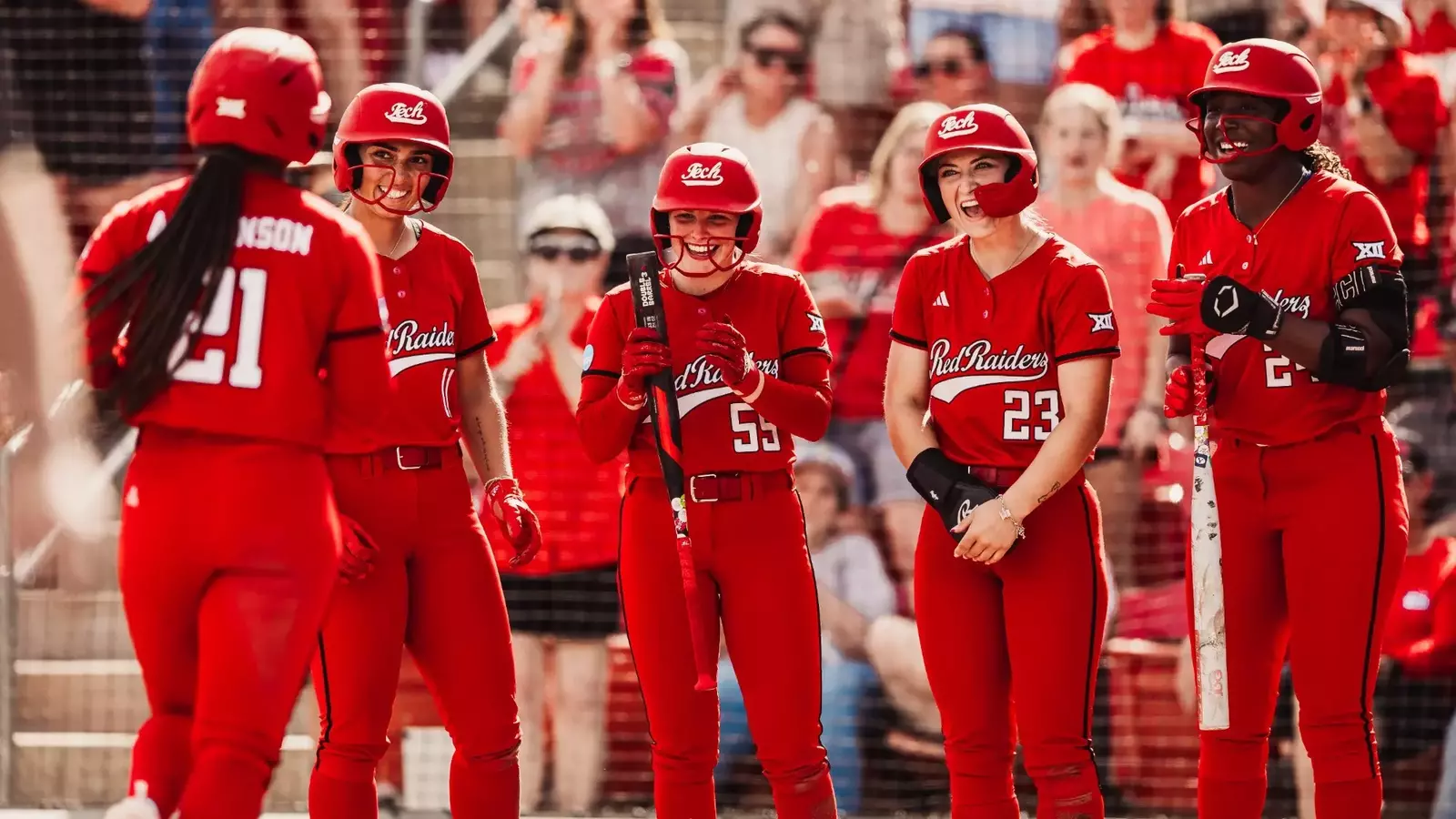
Freshman Samantha Lincoln got the start and threw 3.0 great innings, allowing just one hit while striking out two batters. Chloe Riassetto came in for the final 4.0 innings and picked up her eighth win of the season, allowing just one hit through the 12 batters she faced. Both pitchers combined to throw just 70 in the Tech’s fourth-straight shutout.
On offense, Alana Johnson produced four RBI thanks to a triple and three-run homer as she finished the day 2-for-3 at the plate. NiJaree Canady took over the team lead for homers crushing her ninth long ball of the season 295 feet over the center field fence.
Mihyia Davis didn’t have a hit but reached base twice via walk. Davis stole two bases as well and eclipsed 100 stolen bases for her career. Lauren Allred, Raegan Jennings and Alexa Langeliers each picked up a hit and Hailey Toney recorded an RBI on her fifth sacrifice fly of the season.
How it happened:
Lincoln shook off any nerves she might’ve had as she struck out the first batter she faced in her first career postseason start. Lincoln allowed one hit in the first inning, but it was erased after a 6-4-3 double play. The lefty proceeded to put down the Brown bats in order in the second and third innings.
Davis led off the game with a walk and stole second and third during the next two pitches. Toney waited patiently at the plate after taking pitches and delivered the first run of the game, driving a ball to left field allowing Davis to tag and score.
Allred and Langeliers reached in back-to-back at-bats via hit and walk. Allred was caught stealing trying to go to third, but Tech was still able to capitalize as Johnson tripled to right center field making it 2-0 in favor of the Red Raiders.
Tech made its next offensive push in the third inning. Johnson drove in Allred and Langeliers courtesy of the long ball, her eighth of the season. Canady followed that up just one at-bat later with a home run of her own.
Ticketing
Texas Tech Athletics will be opening up a limited amount of infield tickets online for tomorrow and Sunday.
UP NEXT: Tech will play the winner of No. 2 Mississippi State v. No. 3 Washington at 1 p.m. tomorrow.
NIL
Stanford, Cal win, Santa Clara facing elimination at NCAA softball
The Cal Bears and Stanford Cardinal softball teams took different paths to first-round NCAA Tournament victories, but both Bay Area teams moved closer to a College World Series berth on Friday. Santa Clara’s Hope Alley homered three batters into the Broncos‘ first-ever NCAA tournament game and the Broncos didn’t fold after yielding a four-run second […]

The Cal Bears and Stanford Cardinal softball teams took different paths to first-round NCAA Tournament victories, but both Bay Area teams moved closer to a College World Series berth on Friday.
Santa Clara’s Hope Alley homered three batters into the Broncos‘ first-ever NCAA tournament game and the Broncos didn’t fold after yielding a four-run second inning, but couldn’t complete the comeback against 13th-ranked Arizona and are one loss from elimination in the 64-team tournament.
No. 16 ranked Stanford rolled past Binghamton of New York 9-2 in Eugene, Oregon, scoring in each of the first four innings of the rout. In Norman, Oklahoma, Annabel Teperson allowed two hits in Cal’s 1-0 win over Omaha, and in Tucson, Arizona, SCU fought back to cut a five-run deficit to one in the fourth inning, but was doomed by two more big innings in a 13-5, five-inning loss to the 13th-ranked Wildcats.
Stanford (41-11) entered the tournament with the second-highest team batting average in the nation (.357) and averaged 8.1 runs during the regular season and came out swinging against the Bearcats (36-13) quickly building a seven-run lead. Caelen Koch had four of the Cardinal’s ten hits and drove in two runs. Emily Jones also drove in two runs, and eight different Stanford players scored at least once against the Bearcats, who are in the tournament for the second time in school history.
The Cardinal, which is looking to reach the CWS for the third straight year, faces an old Pac-12 rival, No. 16 Oregon, on Saturday at 1 p.m.
NIL
Florida Atlantic University Athletics
GAINESVILLE, Fla. – Late game heroics from sophomore Kiley Shelton gave the No. 2-seeded Florida Atlantic softball team its first NCAA Regional win since 2016, a 5-4 victory over No. 3-seed Georgia Tech, in an eight-inning thriller on Friday afternoon. The Owls (45-10) and the Yellow Jackets (27-23) went back-and-forth in the opening game of […]
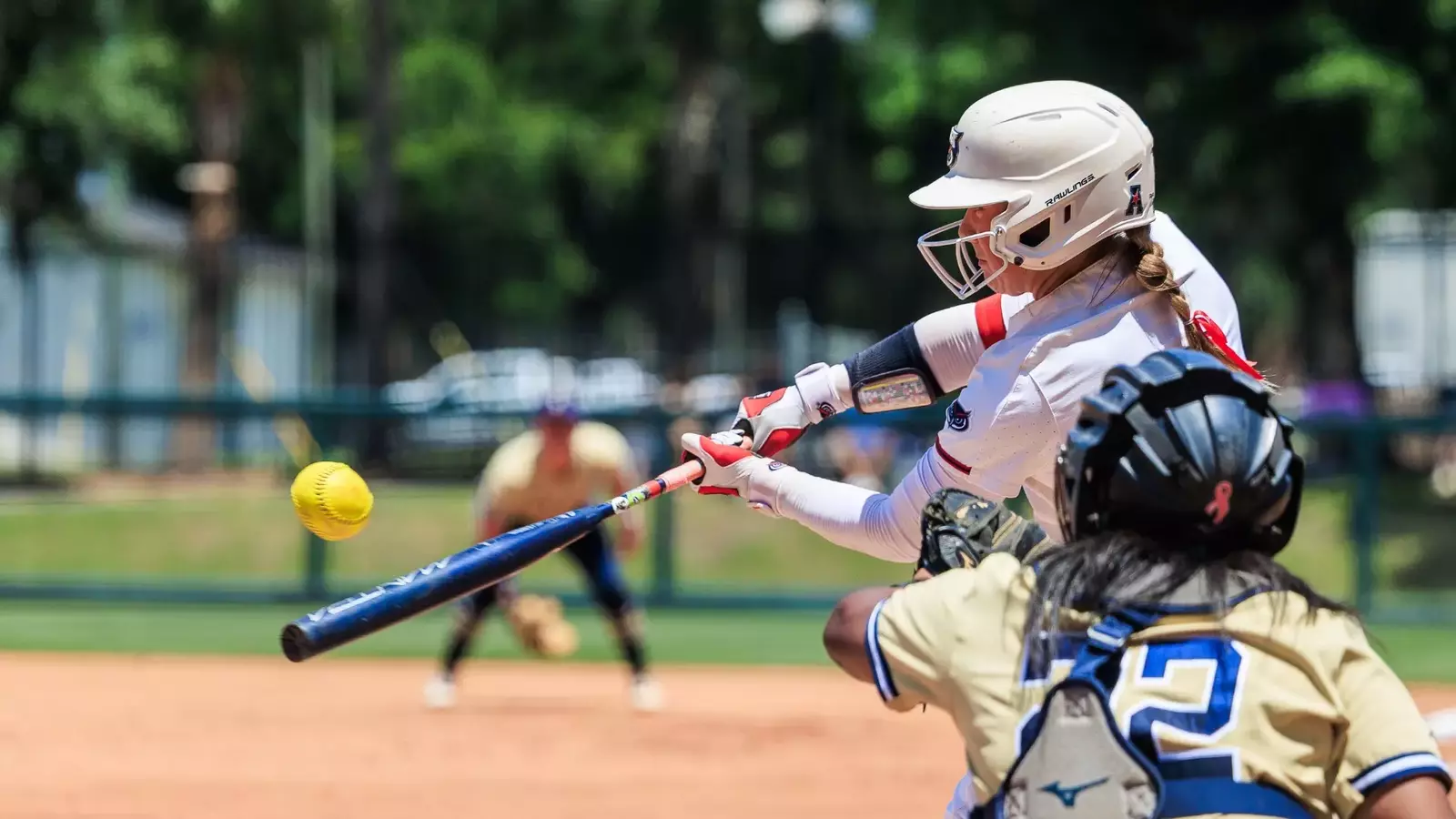
The Owls (45-10) and the Yellow Jackets (27-23) went back-and-forth in the opening game of the Gainesville Regional with four lead changes in the final three innings. Facing two outs on the board and two runners on base in the bottom of the eighth, Shelton hit the game winning RBI single to right field for the walk-off win.
Junior pitcher Autumn Courtney made the start and received the win to improve to 24-3 on the season, pitching 5.1 innings before re-entering in the top of the eighth.
THE BEGINNING
Courtney picked up right where she left off from her previous stellar postseason outing, with three swing-and-miss strikeouts in the top of the first inning to retire the side.
A fourth strikeout from the First Team All-Region selection Courtney stranded Yellow Jacket runners on second and third base in the top of the second. Leading off the bottom frame, sophomore first baseman Bella Cimino launched a shot to left field, her sixth home run of the year, for the first score of the game.
In the bottom of the fifth, sophomore Ciara Gibson blasted the ball to right center field for the Owls’ second leadoff home run of the game. The Yellow Jackets responded in the top of the sixth with three runs to take a 3-2 lead.
THE TURNING POINT
A two-out walk from freshman second baseman Destiny Johns put an Owl runner on base in the bottom of the sixth. Back-to-back doubles then ensued, first from Gibson then from Shelton in her first clutch hit of the game, to put FAU up 4-3.
Down to their last strike in the top of the seventh, a solo home run from the Yellow Jackets tied the score. Florida Atlantic was retired in the bottom half to send the game into extra innings, its first such game since the season opener.
THE FINISH
Courtney returned to the circle to finish the job, stranding two runners on base to get out of the top of the eighth.
Johns reaching on a fielder’s choice set up the winning run. Gibson and Shelton remained the heroes of the game, with the former drawing the walk to advance Johns to second before the latter brought her home from second for a walk-off victory.
NOTES/NOTABLE
- The Owls now have 17 comeback wins on the season, tied for fourth most in the nation.
- Shelton is batting .444 in her last five games with six RBI.
- Cimino’s home run is the first by an Owl batter in an NCAA Regional game since May 21, 2016. It is the first multi-home run game by the team during an NCAA Regional in program history.
- With a base hit on the day, redshirt sophomore outfielder Kylie Hammonds has reached base in 24 consecutive games and 51 out of 55 appearances in 2025.
- Courtney has struck out 14 batters in two postseason appearances.
UP NEXT
The Owls continue NCAA Regional play with a matchup against No. 1-seed Florida (44-14) on Saturday. First pitch is at 12 p.m. With a win on Saturday and Sunday, Florida Atlantic can advance to the Super Regionals for the first time in program history.
FOLLOW THE OWLS
For the Owls’ complete schedule, click HERE. To follow the team socially, visit @fausoftball, or for the most up-to-date information, go to www.fausports.com.
The Owls’ 2025 postseason is powered by Demand the Limits Injury Attorneys.
NIL
State vs. Settlement
A new law in Tennessee empowers schools to directly facilitate NIL deals—potentially defying the NCAA and proposed House settlement. The State of Tennessee just made a bold move in the ongoing battle over NIL—and it could shake up how schools across the country approach athlete compensation. After recently signing a new law (Senate Bill No. […]
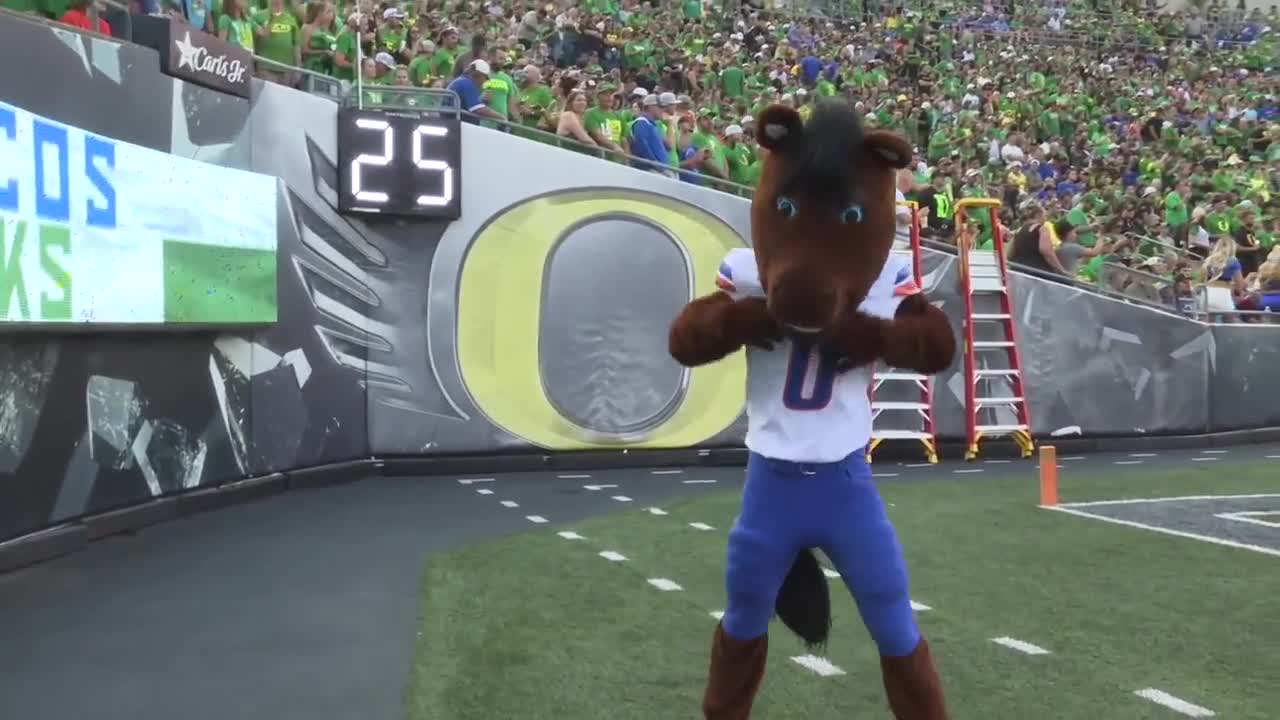

A new law in Tennessee empowers schools to directly facilitate NIL deals—potentially defying the NCAA and proposed House settlement.
The State of Tennessee just made a bold move in the ongoing battle over NIL—and it could shake up how schools across the country approach athlete compensation.
After recently signing a new law (Senate Bill No. 536) into effect, which was approved on May 1, 2025, the Volunteer State has put its universities back in the driver’s seat when it comes to NIL deals.
The state law says schools can now directly facilitate and support NIL compensation for their athletes—even through third-party collectives or affiliated foundations. That’s a significant shift from the NCAA’s current gray area, where schools are expected to keep some distance.
So what’s the catch? Basically, this law dares the NCAA to try to stop them.
Here are the key takeaways:
- Tennessee schools can directly arrange and provide NIL deals to athletes unless they’re explicitly blocked by federal law or a binding court order.
- The NCAA can’t punish schools in Tennessee (i.e., Tennessee, Vanderbilt, or Memphis) for participating in NIL activities that are legal under state law.
- Athletes can’t lose eligibility over NIL income, and their scholarships won’t be impacted by it either.
- The law protects schools from lawsuits for their involvement in NIL deals and shields internal NIL records from open records requests—meaning it’ll be harder for the public to see where the money’s going.
- Private colleges (like Vanderbilt) can opt out of parts of the law if they agree with the NCAA to follow its rules instead.
As Tennessee pushes the envelope, it directly challenges the pending House v. NCAA settlement—a landmark agreement designed to fundamentally reshape college sports.
Unless Congress acts quickly, the NCAA’s already shaky landscape will continue to deteriorate, leaving states to create their own rules and further fuel an NIL arms race.
Georgia head coach Kirby Smart issued a stark warning this week: Without uniform national guidelines, universities could soon find themselves forced into painful decisions, including cutting non-revenue sports. Traditionally, Olympic and smaller sports programs rely heavily on revenue from football and basketball to survive. But if schools must increasingly funnel resources into ever-escalating NIL payouts to compete for talent, sports like wrestling, swimming, and track and field will be first on the chopping block.
It isn’t just finances at stake, either. The very integrity of college athletics hangs precariously in the balance. NIL, while empowering athletes, has opened doors to bidding wars and questionable recruiting tactics. Without Congress stepping in, these pressures threaten the fairness, transparency, and legitimacy that have defined collegiate athletics for generations.
In short, Tennessee’s new law isn’t just a local policy shift—it’s an alarm bell signaling a potentially chaotic future. The future of college athletics—and the many student-athletes whose sports may hang in the balance—depends on swift and decisive action from lawmakers on Capitol Hill.

NIL
Cowgirl Softball drops Indiana in NCAA Regional opener
Fayetteville, Ark. — Seven runs in the sixth inning lifted the No. 24 Oklahoma State softball team to an 11-6 victory over Indiana at Bogle Park Friday. This is OSU’s 16th consecutive win in NCAA Regional play going back to 2019. The Cowgirls never led until the sixth and trailed by as many as […]
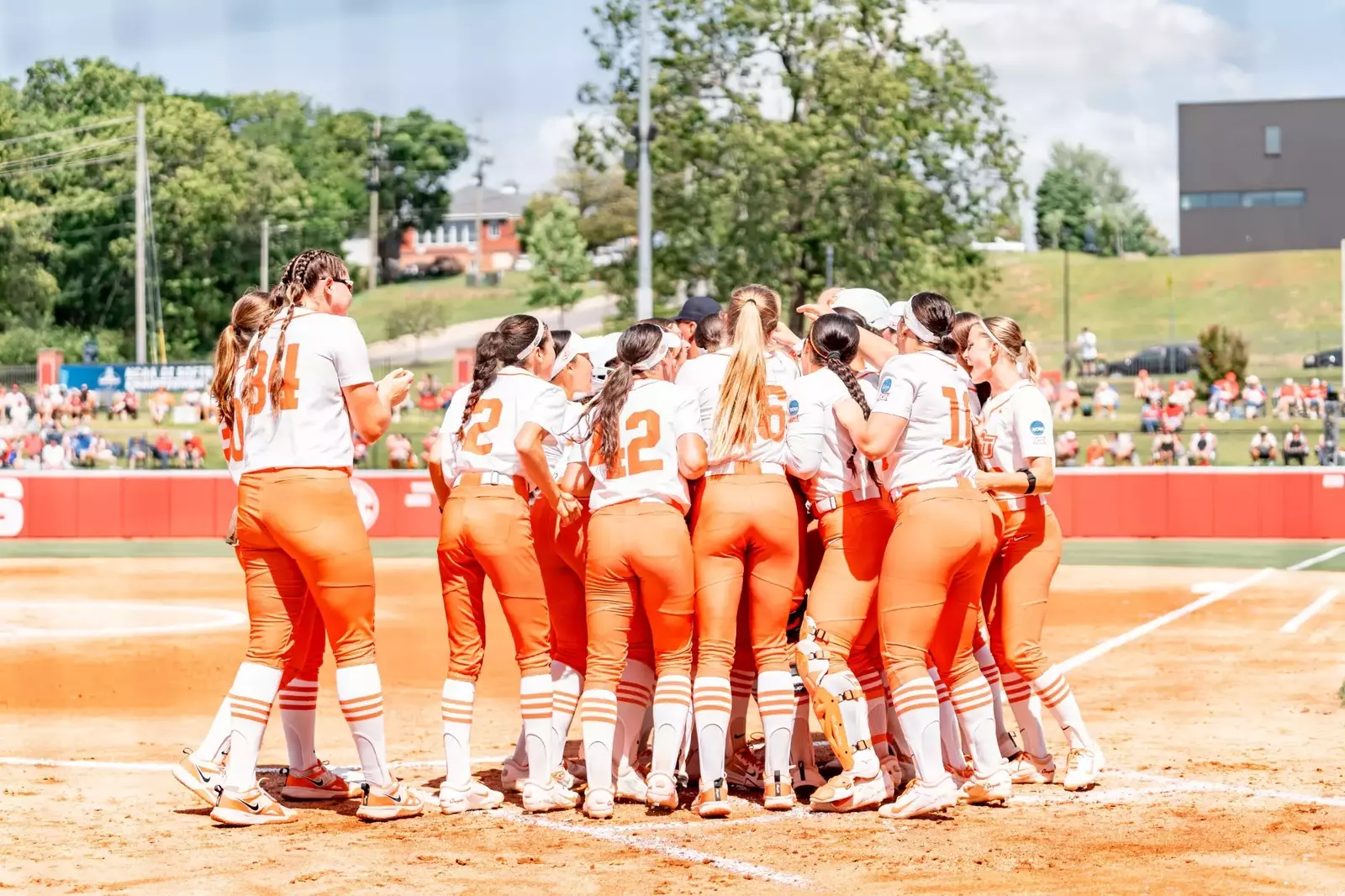
This is OSU’s 16th consecutive win in NCAA Regional play going back to 2019.
The Cowgirls never led until the sixth and trailed by as many as four runs in the fourth inning.
Karli Godwin homered twice for OSU on nearly identical two-run blasts to center field. She finished 3-for-3 with a career-high five runs batted in.
Perhaps the most critical at-bat of the game came in the sixth, when pinch hitter Audrey Schneidmiller singled through the right side to score Macy Graf from second and tie the game at six. A hard grounder from Rachael Hathoot two batters later drove in Schneidmiller and Tia Warsop to give the Cowgirls an 8-6 advantage before the game was blown open thanks to a run-scoring sacrifice bunt by Megan Delgadillo followed by an RBI single from Amanda Hasler. The Cowgirl scoring was capped when Schneidmiller walked with the bases loaded.
The seven-run sixth inning marked OSU’s most runs in an inning this season.
This marks the most runs scored by OSU in an NCAA Tournament game since 2022. With the win, the Cowgirls improved to 34-18, while the Hoosiers dropped to 33-19.
Rylee Crandall picked up the win and improved to 6-4. She entered the game in the fourth inning and kept the high-powered Indiana offense scoreless in the fifth, sixth and seventh. IU’s Brianna Copeland fell to 17-9 with the loss.
Offensive standouts for Oklahoma State included Godwin (3-for-3 with 2 home runs and 5 RBIs), Davis (2-for-3 with three runs scored) and Schneidmiller (1-for-1 with 2 RBIs).
The Cowgirls will face the winner of the Arkansas-Saint Louis matchup at noon tomorrow in the second round of the Fayetteville regional.
For season-long coverage of Oklahoma State Softball, visit okstate.com and follow @CowgirlSB on X and @osusoftball on Instagram. For tickets, visit okstate.com/tickets or call 877-ALL-4-OSU.
| 1 | 2 | 3 | 4 | 5 | 6 | 7 | R | H | E | ||
| Indiana | 2 | 0 | 1 | 3 | 0 | 0 | 0 | 6 | 7 | 4 | |
| Oklahoma State | 2 | 0 | 0 | 2 | 0 | 7 | X | 11 | 8 | 0 |
WP: R. Crandall (6-4) LP: B. Copeland (17-9); SV: None
HR: OSU – Godwin 2 (6,7)
HR: UT – Minnick 2 (18), Wilkison (7)
Duration: 2:28; Attendance: 2928
NIL
Former Hurricanes Pitcher Carson Palmquist Set for MLB Debut with Rockies – University of Miami Athletics
CORAL GABLES, Fla. — Former Miami Hurricanes left-handed pitcher Carson Palmquist has been called up to the Colorado Rockies and is expected to make his Major League debut Friday night against the Arizona Diamondbacks at Chase Field in Phoenix, Arizona. The Fort Myers native and 24-year old will be the 69th player in the program’s history […]
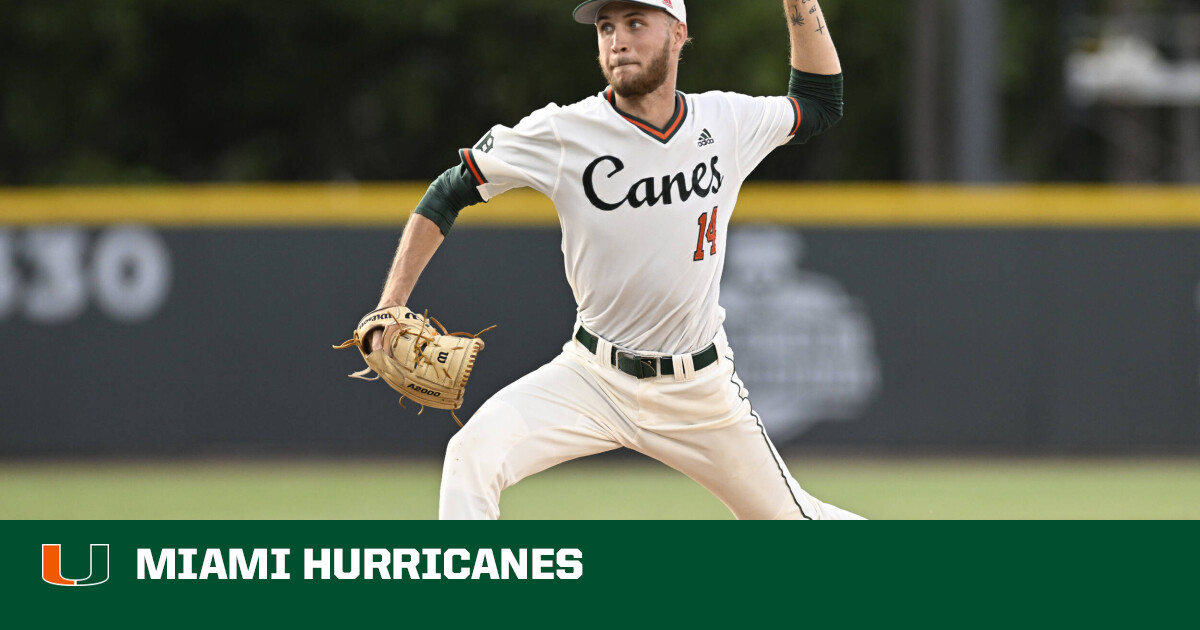
CORAL GABLES, Fla. — Former Miami Hurricanes left-handed pitcher Carson Palmquist has been called up to the Colorado Rockies and is expected to make his Major League debut Friday night against the Arizona Diamondbacks at Chase Field in Phoenix, Arizona.
The Fort Myers native and 24-year old will be the 69th player in the program’s history to reach baseball’s biggest stage.
Palmquist, who starred for the Hurricanes from 2020 to 2022, was one of the most dominant arms in college baseball during his time in Coral Gables. He ended his three-year career at Miami with an 11-5 record and 208 strikeouts in 140.1 innings.
The left-hander earned All-America honors in 2021 as a closer, leading the ACC in saves, before shifting to a starting role in 2022 and finishing with a 9-4 record and 118 strikeouts.
The Rockies selected him in the third round (No. 88 overall) of the 2022 MLB Draft, and he has steadily climbed through the minors. Palmquist opened the 2025 season with Triple-A Albuquerque, where he posted a 3.82 ERA and 45 strikeouts in 35.1 innings across seven starts.
To stay up to date with the University of Miami baseball team, be sure to follow @canesbaseball on Instragram, X and Facebook.
-

 College Sports2 weeks ago
College Sports2 weeks agoDuke basketball's Isaiah Evans on 2025 NBA Draft early entry list
-

 Fashion2 weeks ago
Fashion2 weeks agoHow to watch Avalanche vs. Stars Game 7 FREE stream today
-

 High School Sports1 week ago
High School Sports1 week agoWeb exclusive
-
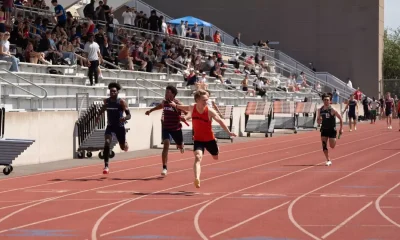
 Sports1 week ago
Sports1 week agoPrinceton University
-
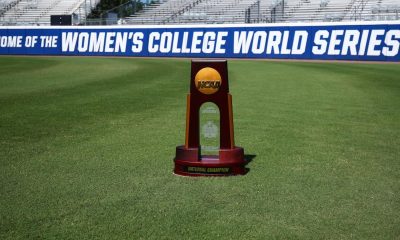
 Sports1 week ago
Sports1 week ago2025 NCAA softball bracket: Women’s College World Series scores, schedule
-

 Motorsports1 week ago
Motorsports1 week agoBowman Gray is the site of NASCAR’S “Advance Auto Parts Night at the Races” this Saturday
-
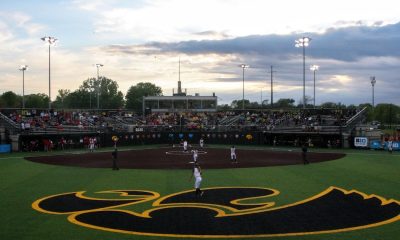
 NIL1 week ago
NIL1 week ago2025 Big Ten Softball Tournament Bracket: Updated matchups, scores, schedule
-

 Motorsports2 weeks ago
Motorsports2 weeks agoMOTORSPORTS: Three local track set to open this week | Sports
-
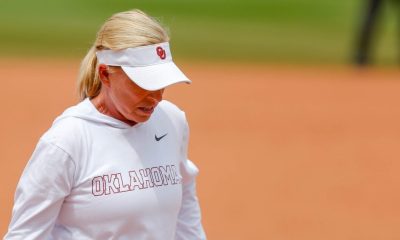
 NIL1 week ago
NIL1 week agoPatty Gasso confirms Sophia Bordi will not finish season with Oklahoma softball
-

 Motorsports1 week ago
Motorsports1 week ago$1.5 Billion Legal Powerhouse Announces Multi-Year NASCAR Deal With Kyle Busch









 (via @loganpaul/TT)
(via @loganpaul/TT)









